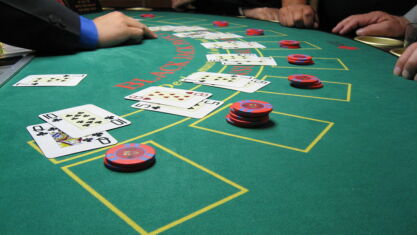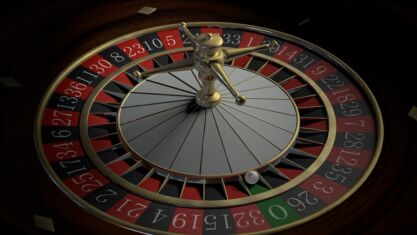Are you a new poker player looking for ways to improve your game? If yes, get ready to learn effective tips that will help you become a pro in no time. No complicated strategies and difficult-to-follow theories – we provide simple poker strategies for beginners that everyone can follow at the table.
5 effective poker strategies for beginners and amateurs
Poker is a game that involves a combination of skill and luck. To create the best hand possible, players don’t solely rely on fortune but develop various strategies that may help them get the upper hand at the poker table. If you also want to know how to improve your poker skills but are not ready to spend much time on training and research, we have five very simple yet useful poker strategies for beginners. Even a completely amateur player can use and benefit from them!
Play fewer hands in an aggressive manner
One common mistake new players make is playing too many hands. While it may be tempting to stay in the action and try to make the best out of every hand, it’s important to be selective with the hands you choose to play. So, it would be better to limit your choice and focus on the quality of your cards rather than quantity.
When selecting which hands to proceed with, it’s crucial to know what is the best starting poker hand. Once you’ve chosen to play a strong one, do it aggressively. It puts pressure on your opponents and increases your chances of winning the pot. Instead of just calling or checking, consider raising or re-raising to build the pot and force your opponents to make tough decisions. By playing fewer hands and putting pressure on other players, you’ll be setting yourself up for success at the poker table.

Benefit from strong hands as fast as possible
When you’re fortunate enough to be dealt a strong hand, it’s crucial to maximize your potential winnings in the fastest way. One of the best poker strategies for beginners would be to fast-play your good hands.
Playing fast means betting or raising aggressively to build the pot and extract more value from your opponents. If they have weaker hands, they may fold, allowing you to win the pot uncontested. However, if they decide to call or raise, you’ll still be in a favorable position with your strong hand. Remember, the goal is to build the pot and minimize potential losses.
Take advantage of the opponent’s weakness
Observation is a crucial skill in poker. Paying attention to other players’ actions can provide valuable information about their hands. When you notice weakness in your opponents, such as checking on the flop and the turn, it’s time to take advantage of the situation.
The most effective way to attack is to bluff. Knowing how to bluff in poker is essential if you aim to win. However, bluffing should be used sparingly and target the right opponents. Don’t forget to build a good hand simultaneously to secure your positions if your opponent doesn’t give up.

Avoid limping as long as you can
Limping refers to calling the big blind without raising. It’s important to avoid this passive play style as long as you can. Limping puts you at a disadvantage by giving your opponents the opportunity to take control of the hand and win the pot.
When you limp, you’re giving away information about the strength of your hand. Experienced players will exploit this weakness and raise, putting you in a difficult position. By being the first player to limp, you also let more players enter the pot, increasing the chances of facing stronger hands. So, try to wait until there’s at least one person at the table who limps – then you’re free to go.
Choose to fold when you hesitate
As a new player, it’s natural to feel unsure or confused in certain situations. When faced with difficult decisions, it’s crucial to trust your instincts and not be afraid to fold. Folding is an essential part of poker that can save you from making costly mistakes. Even the most famous poker players do fold, so there’s nothing wrong with it.
If you have a weak hand or if the board doesn’t favor your cards, it’s often better to fold and wait for a better opportunity. Don’t let your ego get in the way and convince you to stay in the hand just because you’ve already made a bet. Sometimes, it’s better to quit and analyze the situation afterward to benefit from your fold in future games.
















